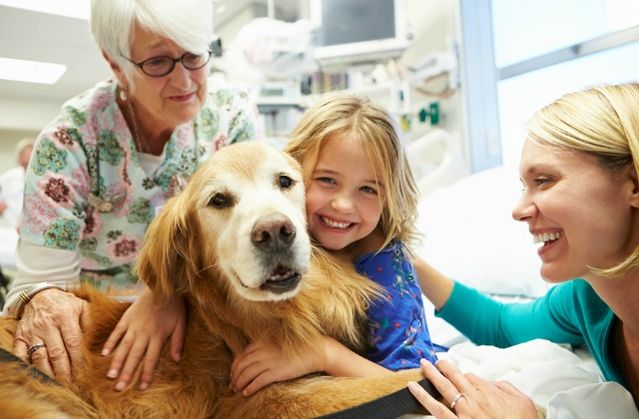
Animals have been domesticated as pets since ancient times — even dating back to 10,000 B.C. European art from the 19th century depicts dogs as cared-for members of a household, rather than as possessions. Queen Elizabeth II regards her corgis as members of her family and has supervised a corgi breeding program since the 1950s — illustrating the importance of domesticated dogs as companions.
Today, it is quite common to see dogs dressed up in outfits walking down the street with their human companions. Pet canines dressed up in sweaters have sure come a long way from their closest relatives — the wolf. Today, our beloved canines are not just companions, but they serve many roles in society. Dogs have many job titles today: search and rescue, police dogs, herding dogs, guard dogs, service dogs and even emotional support dogs.
Many studies have compared the similarities and differences between wolves and dogs since they are related. Wolves became predecessors to dogs, one of humanity’s most popular companion animals. Adult wolves are known to be aloof, withdrawn and even aggressive, but when they are quite young they resemble puppies — playful, cute and even barking like a dog. It is remarkable how a once vicious animal has evolved into man’s best friend.
A dog was once a wolf
It is true that dogs play a major role in society; from their formal professions as work dogs to their important roles as companions, dogs touch and help many lives. Yet there is a fine line between man’s best friend and a feared vicious animal.
The Centers for Disease Control and Prevention reported that in 2001, more than 368,000 dog bites resulted in emergency room visits. The American Society of Plastic Surgeons reported that in 2012, more than 27,000 people received reconstructive surgery as a result of a dog attack. The costs accrued from dog bites are astronomical — involving medical bills, homeowners insurance, lawyer fees, animal control fees and so on.
Although much ongoing debate continues as to whether humans have corrupted dogs or whether they contribute to a dog’s behavior, the point is that dogs were once wild wolves and, as a human race, we must acknowledge and respect that. A dog’s innate defense mechanisms differ from a human’s and many of these defense mechanisms may involve aggression. On the other side of the coin, dogs can be the most compassionate animals that truly benefit from human companionship and vice versa.
As pack animals, wolves are fiercely loyal to the pack and submissive to the alpha wolf. This innate characteristic has transferred to domesticated dogs in that they are loyal to their human families — or “the pack” — and obedient to the person who serves as their primary caretaker — or the “alpha wolf.” This concept has been misunderstood, so it’s important to clarify that alpha wolves are benevolent parental figures who care for the pack, rather than dictators who take over the pack by force. This is important to understand for anyone living with a dog or attempting to train one.
The Russians did extensive studies with arctic foxes, which they filmed showing that with acceptance as marker of selection (e.g. not trying to bite the investigator), that the actual facial physiognomy changed to a more loving and kinder expression (to humans), and they looked like dogs. The genes tied to facial features appeared to be associated with those of aggression or less thereof. Perhaps not all dogs originated from wolves, but all dogs are canids, a word derived from the scientific classification of the “Canidae” family, which includes coyotes, foxes, jackals, wolves and numerous other species. The scientific name for domesticated dogs is “Canis lupus familiaris,” a subspecies of the gray wolf, from which we get more than 400 distinct dog breeds.
Dogs go to work
Dogs are one of humans’ most popular companions. They are also very intelligent and can be well-trained to help their humans with certain tasks such as herding cattle — making farm life much easier for the farmer. Additionally, dogs are trained in other professions and can help detect illegal drugs, bombs, scents from a crime scene. They are the “right hand man” to many police forces. Dogs have worked with law enforcement agencies since the 1800s. The bloodhound in England was responsible for searching for Jack the Ripper in 1888. In 1889, Belgium started training dogs to work in the police force.
Today K-9 units are quite common, and these dogs play a very special role in police work. It is not uncommon for the general public to own a dog to protect their home. As territorial animals, dogs can be trained to protect the house and yard, to bark as an intruder alert, and to attack on demand when their property and owners are threatened.
Assistance dogs help people with all kinds of disabilities function in society. The most well-known type of assistance canine is the guide dog that helps the visually impaired. Hearing dogs alert the deaf to dangers, alarms or other important noises. Many assistance dogs have been trained to help veterans or people with PTSD cope with this disorder and other mental disorders. These service dogs can help those struggling with mental challenges to navigate through everyday life.
The emotional role of pet companionship
Of course, the most popular reason we have dogs is for their companionship. Proof shows that dogs help people live a healthier and happier life. Dogs have been shown to improve their humans’ cardiovascular and mental health by reducing blood pressure, increasing exercise, and decreasing stress and anxiety levels.
Nearly 78 million dogs are pets in the United States. Just like Queen Elizabeth, many people around the world report that their dogs are part of the family and just as important as their children and spouses. Dogs’ friendly and outgoing personalities enable them to expose their human companions to other individuals, potentially facilitating new friendships among humans. Additionally, dogs can serve as activity partners, show animals and surrogates for human companionship.
Dogs play a major role in animal-assisted therapy. They are known to visit patients in hospitals and elderly adults in nursing homes, and provide companionship for those who have been diagnosed with mental and physical ailments. At the end of the day, dogs may be “man’s best friend,” but they also serve many important purposes in society.
Contributed by Kristen Fuller, M.D.




